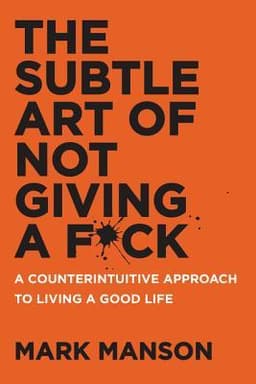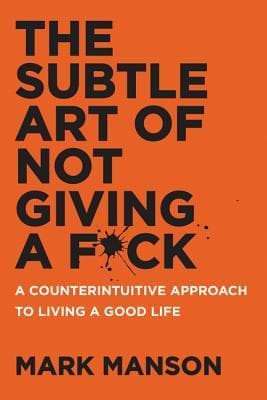
The Courage to Be Disliked
How to free yourself, change your life and achieve real happiness
Book by Ichiro Kishimi and Fumitake Koga
Feeling Lazy?Read 1 Minute Summary
Summary
Through an illuminating dialogue, "The Courage to Be Disliked" reveals how Adlerian psychology empowers us to overcome the past, embrace our authentic selves, and find genuine happiness by courageously living in the present and contributing to others.
Sign in to rate
Average Rating: 5
The Unknown Third Giant
Alfred Adler was one of the three giants of 20th century psychology, along with Freud and Jung. However, Adler is much less well-known, despite being highly influential. Adler split from Freud's psychoanalytic society and developed his own school of "individual psychology." Adler's ideas were groundbreaking and ahead of his time. While not a strict scholar, Adler's insights into human nature provide a culmination of truths and understanding of the human condition.
Section: 1, Chapter: 1
People Can Change At Any Time
A core tenet of Adlerian psychology is that people can change. Your personality and way of living are not fixed by your past experiences or traumas. Freudian etiology looks at the past to find causes, while Adlerian teleology focuses on the present and future to find the purpose behind behavior.
As Adler states: "No experience is in itself a cause of our success or failure. We do not suffer from the shock of our experiences - the so-called trauma - but instead we make out of them whatever suits our purposes. We are not determined by our experiences, but the meaning we give them is self-determining."
In other words, you are not doomed by your past - you have the power to give new meaning to your experiences and change your way of living starting today. People are always selecting their own lifestyles in each present moment.
Section: 1, Chapter: 3
Trauma Does Not Exist
Adlerian psychology rejects the Freudian notion of trauma. Trauma does not objectively exist as a causal factor in people's problems. Rather, people give meaning to past experiences in a way that suits their current purposes.
As the philosopher states: "Adler, in denial of the trauma argument, states the following: 'No experience is in itself a cause of our success or failure... We are not determined by our experiences, but the meaning we give them is self-determining.'"
People are not passively shaped by past experiences, but actively choose how to interpret and respond to them. T
Section: 1, Chapter: 3
People Fabricate Anger
Adlerian psychology argues that emotions like anger do not arise uncontrollably, but are fabricated by the individual to serve a goal.
The philosopher gives an example of a mother who incessantly yells at her daughter, but instantly shifts to a polite demeanor when the phone rings and it turns out to be the daughter's teacher. Similarly, when the youth yells at a waiter who spilled coffee on him, the philosopher argues he didn't fly into an uncontrollable rage. Rather, he fabricated anger as a tool to make the waiter submit through a display of anger.
Section: 1, Chapter: 4
Focus On The Present, Not The Past
Adlerian psychology emphasizes living in the present rather than dwelling on the past. The past does not determine the present. The philosopher argues we must not let past events act as a restrictive "bond" on our here and now.
The key point is: "What I can do is to think not 'What happened in the past?' but rather 'What can I do from now on?' If one is constantly thinking 'What can I do?' the right way of living will open up right before one's eyes."
Section: 1, Chapter: 5
You Have The Ability To Change Your Personality
Adlerian psychology uses the term "lifestyle" where one might say "personality" or "disposition." However, Adler viewed lifestyle not as a fixed trait, but as the way of living you choose, often around age 10.
This means you have the power to choose a new "lifestyle" at any time. As the philosopher explains:
"The important thing is that one has not been simply endowed with a disposition, but that one has chosen a way to live...If the lifestyle is not something that you were naturally born with, but something you chose yourself, then it must be possible to choose it again whenever you like."
Section: 1, Chapter: 9
All Problems Are Interpersonal Relationship Problems
Adlerian psychology asserts that all problems people face are interpersonal relationship problems. This is because all human beings are social beings who exist within the context of relationships.
As Adler states: "To get rid of one's problems, all one can do is live in the universe all alone." But since we cannot exist without interpersonal relationships, we cannot escape interpersonal problems. The real issue is how one faces and interacts within one's relationships.
Section: 2, Chapter: 12
Feelings Of Inferiority Are Subjective Interpretations
Adlerian psychology views feelings of inferiority as subjective evaluations rather than objective facts. People feel inferior based on their own interpretations of themselves in comparison to others or to their ideal selves.
The philosopher notes that his own feeling of inferiority about his height was a subjective judgment, not an actual lack of worth: "My height of 61 inches in itself was not inferior at all. It was rather that the value I attached to that height was the issue."
Section: 2, Chapter: 13
Admitting Fault Is A Path to Freedom
Many people refuse to admit fault because they link it to defeat in an interpersonal power struggle. If one admits a mistake, one has "lost" in the battle for dominance. But Adlerian psychology asserts this is an error.
The philosopher argues: "Admitting one's mistakes is not defeat. Likewise, fulfilling one's promises and doing what one has said one will do is also not defeat...Because in the end, one is only competing with oneself and challenging oneself to grow."
If one can let go of the desire to win control over others and simply focus on being true to oneself, then admitting mistakes becomes a courageous act of self-honesty that allows one to learn and improve.
Section: 2, Chapter: 19
Pursuing Superiority Through Interpersonal Relationships
Adlerian psychology posits a universal human drive for superiority - the desire to improve one's condition and pursue an ideal state. While this often manifests as unhealthy competition with others, the healthy form is simply the striving to grow as an individual.
The philosopher notes: "One does not need to battle with others to be able to live. One only needs to continue moving forward and challenging oneself to grow. One need not be trapped in the narrow confines of 'superiority or inferiority' that one decides for oneself."
Section: 2, Chapter: 21
Growth is Individual
Growth is an inherently individual task. One pursues superiority over one's past self, not superiority over others. The path is to constantly take forward steps in one's development, not to fight others for relative status. By focusing on self-growth rather than competition, one can pursue superiority in a healthy, productive manner.
Section: 2, Chapter: 21
The Desire For Recognition Leads To Unhappiness
The philosopher argues that the desire for recognition from others leads to a lack of freedom and unhappiness. When one craves recognition, one ends up living according to others' expectations instead of one's own values.
The more one seeks recognition, the more one tries to stand out as special by conforming to what one thinks others want, and the more one loses sight of one's authentic self. It is a downward spiral into performative, approval-seeking behavior that leads away from self-actualization.
Section: 3, Chapter: 24
You Are Not Living To Satisfy Others' Expectations
Many people live their lives trying to satisfy the expectations of those around them - parents, bosses, spouses, friends, etc. They contort themselves to fit the roles others want them to play. But this is a recipe for misery.
No matter how much you twist yourself to fit an imagined ideal, you will never perfectly match the vision in another person's head. More importantly, doing so means abandoning your own path in life.
Section: 3, Chapter: 25
How To Separate Tasks In Interpersonal Relationships
Many interpersonal problems arise from people taking on tasks that are not their responsibility. We try to compel others to think and behave the way we want them to. The philosopher argues you must clearly delineate your tasks from others' tasks.
Your own tasks are things you can control yourself - your own thoughts, choices, and actions. Others' tasks are their own responsibility to manage. For example, a parent cannot force a child to study. The parent's task is to provide a supportive environment, but actually studying is the child's own task.
Section: 3, Chapter: 26
Unconditional Confidence Is The Basis Of Deep Relationships
To build deep interpersonal relationships, the philosopher asserts we must ground them in unconditional confidence, not conditional trust. Trust is transactional - I trust you if you meet certain criteria. But confidence is a choice to believe in the other regardless of "proof."
By choosing to have faith in the other, even knowing you may sometimes be let down, you create the basis for genuine intimacy. Always holding back unless the other "earns" your trust first limits the depth of connection. Give trust freely, and address issues as they arise. Don't make it contingent on never being disappointed.
Section: 3, Chapter: 31
Relationship Cards Are In Your Hands, Not Others'
Many people feel their relationships are at the mercy of others' feelings toward them. If the other person rejects or mistreats them, they feel they have no control to change the relationship. But the philosopher argues the "interpersonal relationship cards" are always in your own hands.
For example, the philosopher felt he had a bad relationship with his father because his father hit him as a child. But he realized this was giving control to his father. The philosopher could choose to change his perspective and actions to improve the relationship, regardless of his father's behavior.
Section: 3, Chapter: 32
Individual Psychology Views People Holistically
Adlerian psychology, also known as "individual psychology," got its name because it views individuals holistically, not because it focuses on individuality in the sense of separateness or superiority. Adler objected to Freud's division of the mind into competing parts like the id, ego, and superego. He saw the mind as an integrated whole, with consciousness and unconsciousness on a continuum.
As the philosopher explains: "Adler was opposed to the idea of the unconscious as an entity that is separate from consciousness...The mind is not some kind of black box like the unconscious. The mind is a whole, and its processes are all interconnected."
Section: 4, Chapter: 33
The Purpose Of Interpersonal Relationships Is Community Feeling
If all problems are interpersonal problems, as Adler asserts, then what is the ideal state of interpersonal relationships? The philosopher states Adler's answer is "community feeling."
Community feeling means sensing one's "belongingness" and contribution to the community. It stems from having concern for others beyond oneself, and from cooperating on an equal basis. The philosopher elaborates:
Section: 4, Chapter: 34
Self-Centeredness Stems From Lack Of Community Feeling
The philosopher argues many interpersonal problems arise from self-centeredness. Self-centered people feel everyone else exists to serve their own goals, leading to unhappiness when others disappoint those expectations.
This stems from a lack of community feeling - of seeing oneself as part of a larger social network. As the philosopher notes: "[Self-centered people] are concerned only with the 'I' and are held in the grip of the life-lie that says 'I am at the center of the world.'"
The antidote is expanding concern and empathy to others. The philosopher states: "When one is able to feel 'I am of use to someone' and have the deep awareness that 'I am of use to someone,' that is community feeling."
Section: 4, Chapter: 35
Accept Yourself And Others As Imperfect To Find Community
Self-acceptance is essential to building deep relationships and community feeling. As long as one rejects oneself as flawed in comparison to an idealized self-image, one will struggle to connect authentically with others.
The philosopher explains: "One accepts one's irreplaceable self 'as is,' and at the same time one accepts 'as is' the others who are around one...It is because one can accept oneself that one can trust in others."
Embracing your imperfect self allows you to embrace others' imperfections as well, seeing them as full human beings instead of idealized images. You can connect on the basis of shared humanity rather than impossible standards. This means admitting mistakes, showing vulnerability, and staying true to oneself even if it sometimes displeases others.
Section: 4, Chapter: 43
Excessive Self-Consciousness Stifles The Self
Many people, especially youth, struggle with excessive self-consciousness that stifles their ability to express themselves authentically. They constantly second-guess how others perceive them and edit their behavior to avoid negative judgment. The problem is placing too much weight on others' approval or disapproval and not enough on one's own values and preferences. This leads to a performative, inauthentic way of relating that breeds anxiety and isolation.
The solution is building confidence in one's "unfiltered" self and having the courage to show up authentically, even if sometimes displeasing to others. Focus on self-acceptance and self-trust over managing others' impressions of you. Real connection starts from realness, even if it's not always pretty.
Section: 5, Chapter: 43
Self-Acceptance Is Not Self-Affirmation
The philosopher stresses that accepting oneself is not the same as affirming or esteeming oneself. Self-acceptance means acknowledging reality, while self-affirmation means clinging to a positive illusion.
Self-acceptance means facing oneself squarely, acknowledging one's objective limitations alongside one's strengths. Only by grounding in truth can one determine the proper path forward. Sugarcoating reality feels good in the moment but leads one astray in the long run. Accept what is, then orient toward what could be.
Section: , Chapter: 44
The Courage To Be Normal
Many people, especially children, attempt to gain a sense of belonging and self-worth by trying to be "special" rather than ordinary.
The philosopher asserts: "What Adlerian psychology advocates is not specialness but 'the courage to be normal.' The important thing is 'to not be special'; the courage to be an ordinary person who keeps a safe distance from people.'"
Constantly striving to stand out as superior is a form of overcompensation for a deep inferiority complex. But true self-worth comes from self-acceptance, not self-aggrandizement. Instead of trying to be the best or worst, have the courage to be average. Embrace your normalcy. Find belonging in shared humanity rather than specialness.
Section: 5, Chapter: 51
Life Is A Series Of Moments, Not A Straight Line
Many people view their lives as linear narratives, a straight line from past to future in which the past determines the present and the end goal determines the value of the journey. But the philosopher argues this is a false and unhelpful way to look at life.
He explains: "Life is not climbing a mountain in order to reach the top...Life is a series of moments called 'now.'" He contrasts the linear view as "kinetic" with the momentary view as "energeial."
A healthier approach is to embrace each moment as an end in itself, not a means to an end. Engage fully with what is in front of you instead of dwelling on what is behind or ahead of you.
Section: 5, Chapter: 52
Meaning In Life Is Made, Not Found
Many people despair of finding meaning and happiness because they believe it must come from outside themselves. They look at the chaos of the world and conclude life is inherently meaningless. But the philosopher argues this stems from the mistaken belief that meaning is something to be found "out there" rather than created from within.
We all have the capacity to imbue our own lives with meaning and purpose, regardless of our objective circumstances. Meaning arises from what we bring to situations, not from what they bring to us. Even experiences of loss and suffering can be made meaningful through the stand we take toward them.
Section: 5, Chapter: 55
Related Content


The Subtle Art of Not Giving a F*ck Book Summary
Mark Manson
In "The Subtle Art of Not Giving a F*ck," Mark Manson argues that the key to a good life is not the pursuit of happiness, but rather the embrace of uncertainty, failure, and our own limitations - learning to care deeply about a few important things, and letting go of the rest.
In "The Subtle Art of Not Giving a F*ck," Mark Manson argues that the key to a good life is not the pursuit of happiness, but rather the embrace of uncertainty, failure, and our own limitations - learning to care deeply about a few important things, and letting go of the rest.
Psychology
Personal Development
Self-Help
Philosophy

